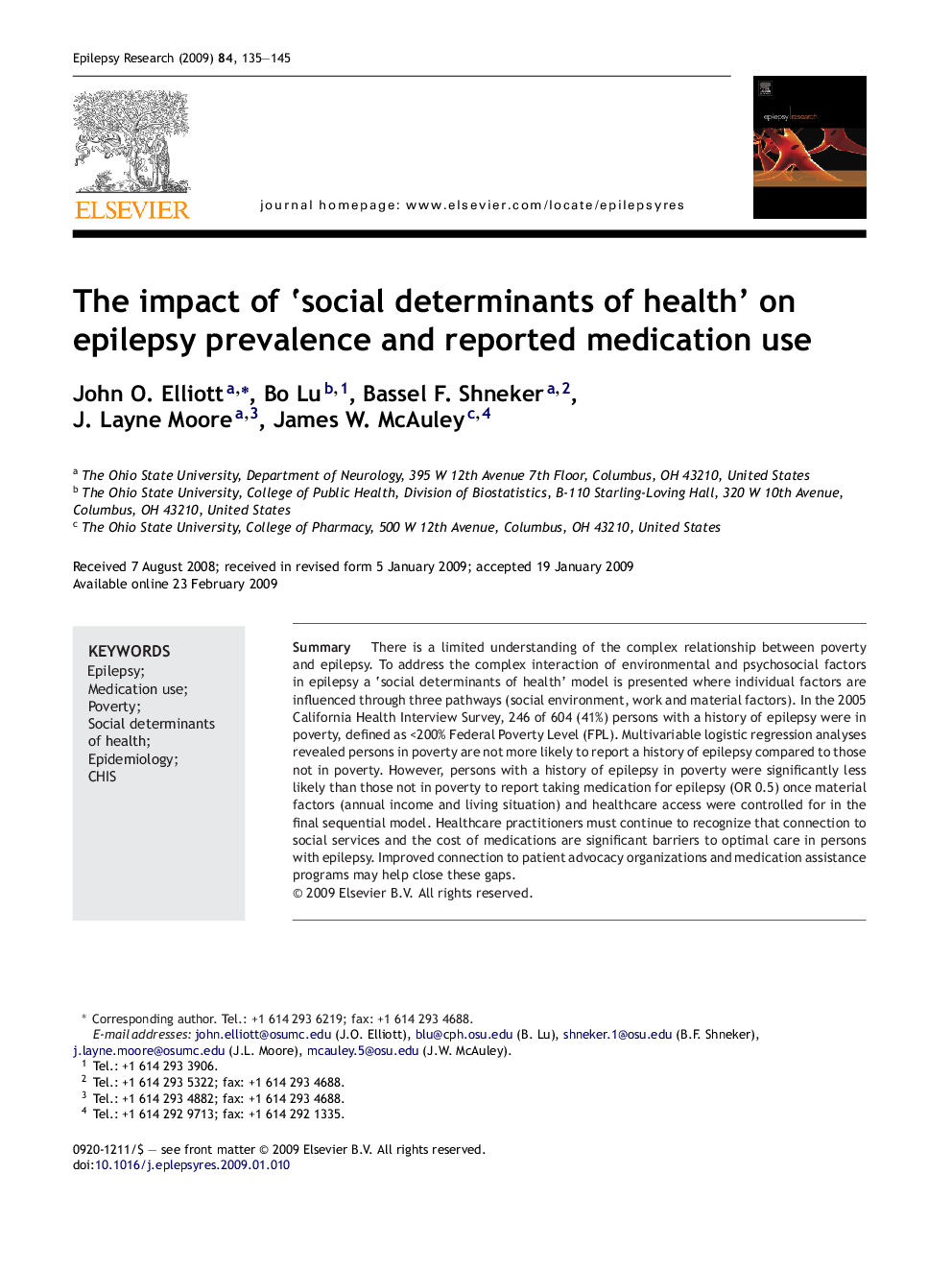| Article ID | Journal | Published Year | Pages | File Type |
|---|---|---|---|---|
| 3052813 | Epilepsy Research | 2009 | 11 Pages |
SummaryThere is a limited understanding of the complex relationship between poverty and epilepsy. To address the complex interaction of environmental and psychosocial factors in epilepsy a ‘social determinants of health’ model is presented where individual factors are influenced through three pathways (social environment, work and material factors). In the 2005 California Health Interview Survey, 246 of 604 (41%) persons with a history of epilepsy were in poverty, defined as <200% Federal Poverty Level (FPL). Multivariable logistic regression analyses revealed persons in poverty are not more likely to report a history of epilepsy compared to those not in poverty. However, persons with a history of epilepsy in poverty were significantly less likely than those not in poverty to report taking medication for epilepsy (OR 0.5) once material factors (annual income and living situation) and healthcare access were controlled for in the final sequential model. Healthcare practitioners must continue to recognize that connection to social services and the cost of medications are significant barriers to optimal care in persons with epilepsy. Improved connection to patient advocacy organizations and medication assistance programs may help close these gaps.
